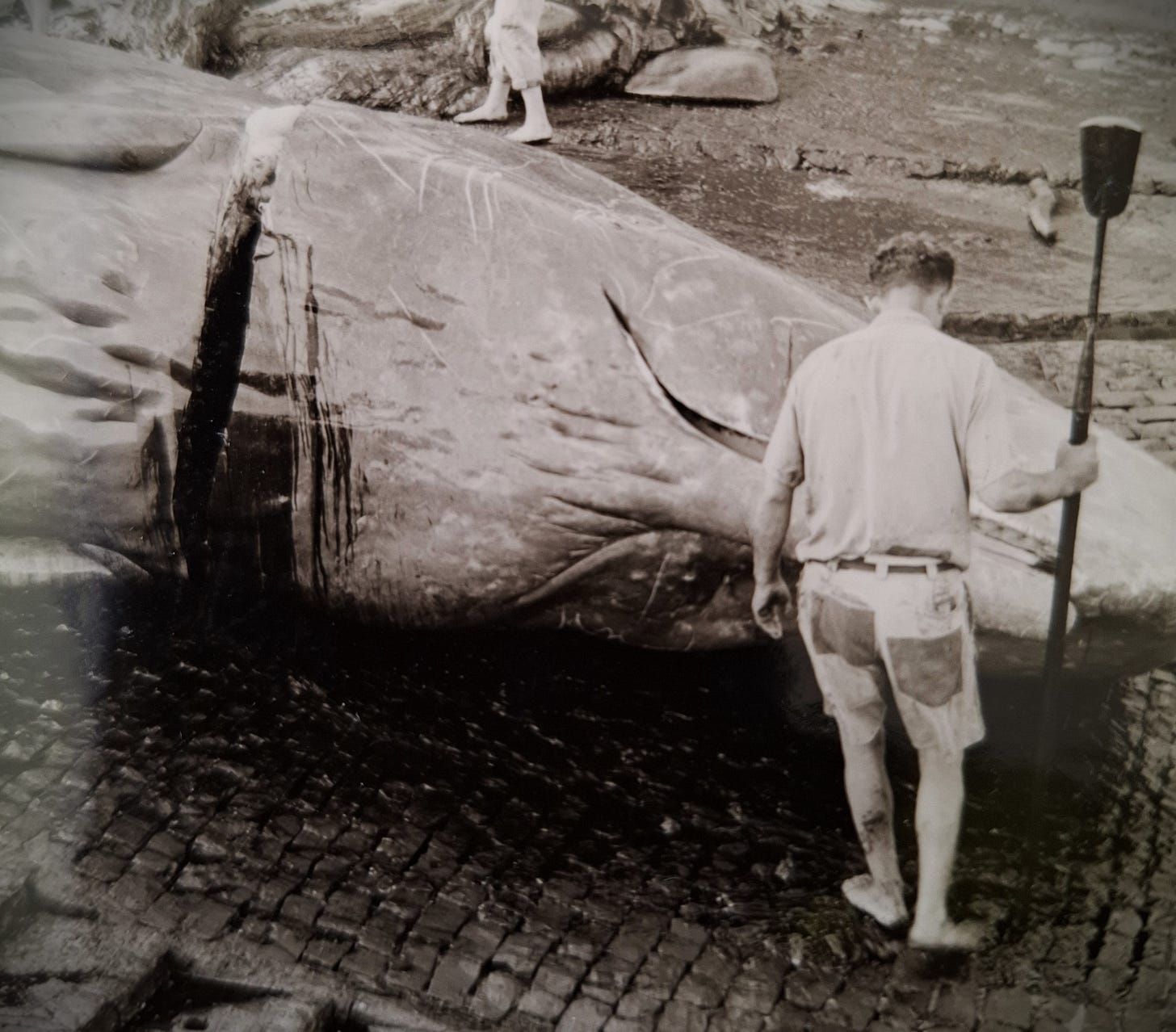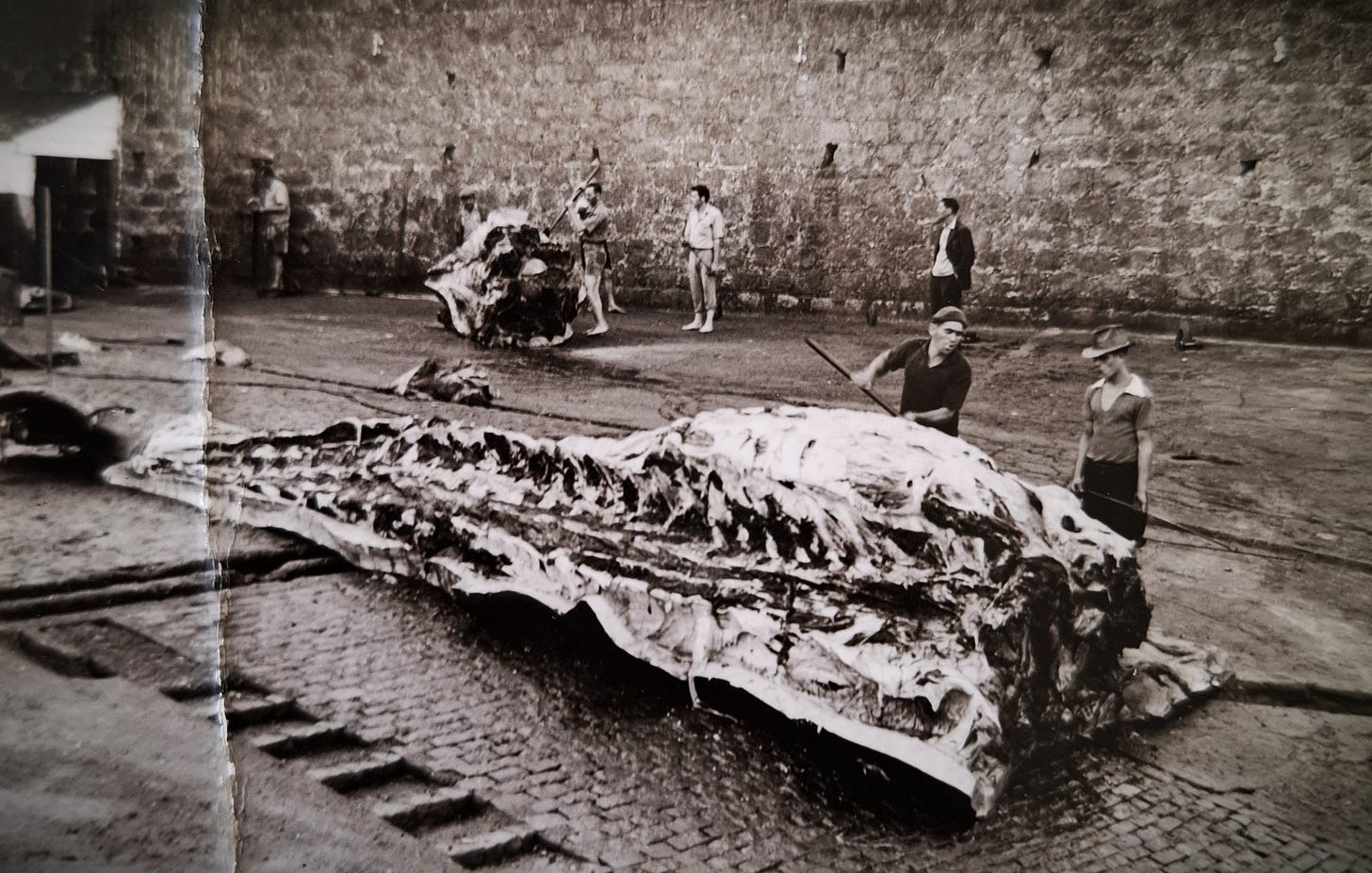Was whaling ever noble?
I ask this because our latest BBC podcast Rare Earth is all about our gruesome past bond with the largest animals ever to grace the planet and the somewhat improved present.
Whale flensing from the Azores in the 1960’s. Though before my time, it makes me a little queasy to admit that these are photos from an old family album. Let’s call it an ‘educational’ day out.
We trace cetacian relations from the Inuit of Northern Canada, through Basque whalers, Brits, Americans, Norwegians and the giant factory ships of the Far East and Russia. It’s a story of hunting populations close to extinction in one place and moving on to the next. From the Bay of Biscay to the North Atlantic, the Arctic and then the South Atlantic. It was shocking to me to discover that peak whaling was actually in the 1960’s - just in my lifetime - and many British vessels were still involved.
This weekend (26th- 29th June) two organisations the South Georgia Heritage Trust and the Dundee Heritage Trust are coming together in that city to host A Whale of a Weekend and here is the attractive blurb from the website ‘Get ready for a fun-filled festival celebrating art, science, polar exploration, and Scottish cultural heritage – all centred around the fascinating world of whales and Scotland’s links to the sub-Antarctic island of South Georgia!’
Not untrue and I’m sure it will be a fascinating display. But an equally valid description of that time could be ‘Experience how the people of Scotland and the remote island of South Georgia were linked in the barbaric slaughter of the most majestic creatures in our ocean which nearly wiped them out’.
Not so ‘fun-filled’, that one.
In an incredibly powerful piece of audio on Rare Earth, created by our producer Alasdair Cross, we hear from Gibbie Fraser one of the Scottish whalers who sailed to Antarctic waters. He is frank and somewhat uneasy about the brutality of the work, but not ashamed. His justification arises from the lack of other employment alongside the skill, danger and camaraderie of the task. It’s similar to what you hear from soldiers or, perhaps a closer analogue to an occupation once revered that now offends environmental sensibilities: coal mining.
Now, from my middle class and well educated background, I am not really in a position to criticise the career choices of those with much more limited opportunities. But I still baulk at considering 20th century whaling a noble or admirable occupation. When you hear that whales were hunted with exploding harpoons, fired from factory ships, which erupt within their flesh turning the sea blood-red as their dying blow is transformed to a crimson mist. And we knew by then that their numbers were crashing.
As to whether whaling was ever noble? The Inuit hunting Bowhead whales from kayaks with hand thrown harpoons to gain vital nutrition and materials in a hostile world - for me, that makes the grade.
In happier news, we hear how (since the 1980’s commercial whaling ban) the numbers of humpback whales are back to 93% of their pre-whaling populations around South Georgia. Blue and Sei Whales are slower breeding but even these species show signs of recovery. And, to really put a smile on your face, listen out for burbling human babies and the songs of humpback whales. What can one teach us about the other?



